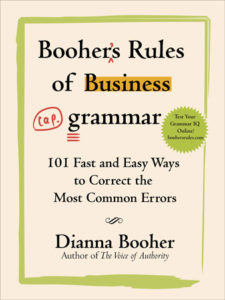


My most valuable learning experience in graduate school also happened to be my most humiliating. Having read the first hundred pages of my master’s thesis, my thesis director, a literary prize–winning novelist himself, handed back my novel with downcast eyes and mumbled “It needs to be tightened.”
Then he added, “Here’s a good page.”
I stared at him dumbfounded. I’d written what I considered more than 100 good pages.
He pulled page 67 from the stack—a lively scene of dialogue on which he’d scrawled “Excellent” across the top.
I stared at it for quite some time to determine what magic had been at play there, but missing elsewhere. I agreed that it looked brilliant—but no different from the other 99+ pages he’d effectively relegated to the shredder.
“Would you edit a page while I watch—to show me what’s so . . . redundant in the rest?”
Sullenly, he picked up a red pen and began to slash through words, phrases, and sentences as if they were road kill. Horrified as his pen obliterated metaphor after simile after prepositional phrase, I sat stunned when he returned the edited page to me. It was about one-fourth its original length.
Watching that process gave me both pain and pleasure. Seeing him chop, splice, and shape significance out of the sprawling proved to be the most valuable 15 minutes of my writing career. Redundancy has been a dirty word ever since.
Fiction and nonfiction writers alike understand the value of crisp writing. As novelist Elmore Leonard famously said, “I try to leave out the parts readers skip.”
So what’s the problem? Identifying what to leave out and what to include.
Often authors argue their case for adding words, phrases, and sentences:
All good reasons. These are not the stuff of fluff I’m referring to. I’m talking about eliminating redundant ideas and unnecessary words, phrases, and details.
Start your edit with facts and details that are irrelevant to your topic or purpose. Next, consider repetition and redundancy. Have you made the same point several times by just rewording the idea. If that repetition adds clarity or emphasis, fine. But if you’re simply rambling, cut the clutter.
Clutter often collects in your document from habit. If you hear fat phrasing routinely from coworkers and read sloppy writing from others, you start to spit out those clichés without thought.
Flabby writing—whether book manuscripts, white papers, emails, or proposals—looks like this:
“on account of the fact that” versus “because”
“with reference to” versus “because”
“in connection with” versus “about”
“to be in a position to” versus “to”
“in the event that” versus “if”
“in spite of the fact that” versus “although”
“on a regular basis” versus “regularly”
“numerous times” versus “frequently”
“it may well be that” versus “maybe”
“serious crisis” versus “crisis”
“refer back to” versus “refer to”
“plan ahead” versus “plan”
“continue on” versus “continue”
“past experience” versus “experience”
When you string several flabby phrases together, you get sentences like this: “There were two factors that caused the problem—inattention and speed.” versus “Inattention and speed caused the problem.”
Sound familiar? No matter whether you’re writing The Great American Novel, a client email, or your community ezine, rooting out the rot renders crisp copy and a killer-good story.
Learn more ways to ensure your writing is client ready with Booher’s Rules of Business Grammar: 101 Fast and Easy Ways to Correct the Most Common Errors.
